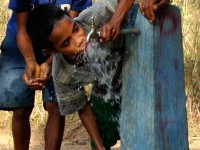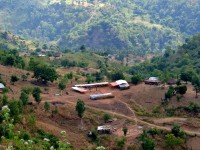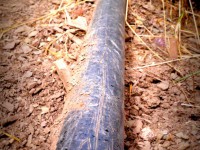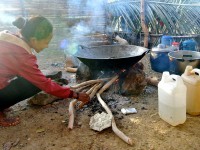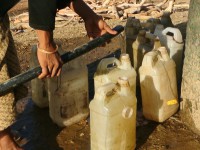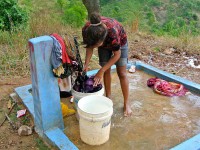To reach the remote community of Umaheuk you must drive three hours’ from capital city, Dili, then cross a wide river bed and climb for over an hour on a dirt track more used to feet and hooves, than 4WD drives.
Nestled amongst the dry hills of Manatuto district, Umaheuk is a community of around 60 families living in traditional thatch houses. Peanuts, sweet potato, cassava and tobacco leaves are their main source of food and livelihood, selling surplus at the market, a four kilometre walk away.
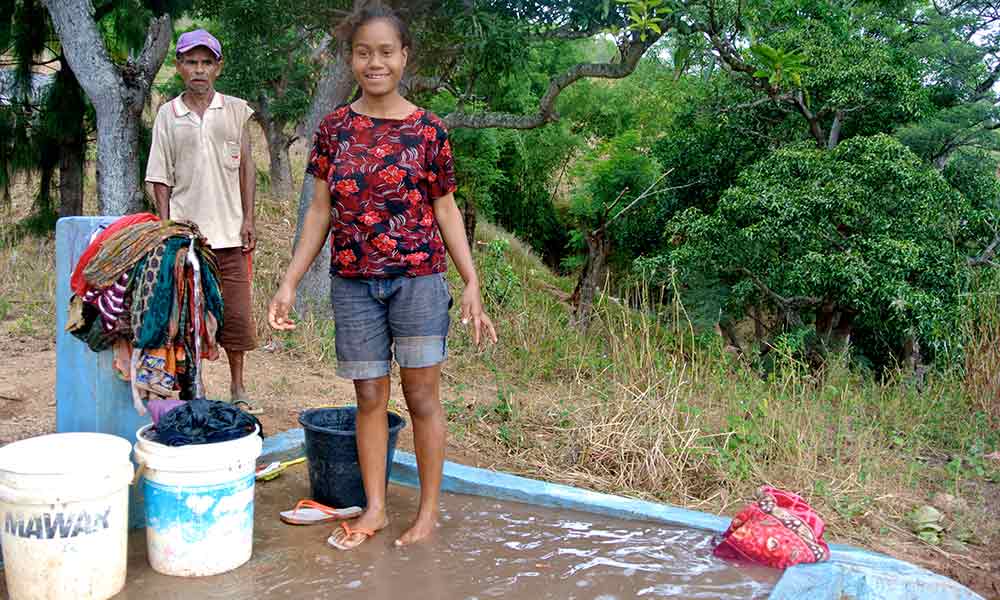
Community member takes a moment out from washing clothes to say: “We like that the water is now so close to us! Before in dry season we had to walk too far.”
Water has always been difficult for the community, especially in dry season when the nearest springs dry up. The community had to walk at least a kilometre uphill to a small stream, explains Xefe Aldeia Labubu (neighbourhood chief of Labubu), Luis Mendonca.
“To access water we had to fetch it from the source of the spring, and
that was a kilometre’s walk for some, and two or three kilometres for others. The distance was stressful,” he says.
When PNDS invited communities to choose projects to build, the people of Umaheuk picked a gravity water system. To build the system, they carried sacks of sand and cement a kilometre uphill by hand.
“The main road doesn’t reach up to the source of the water, and so we realised that if we wanted a clean water supply, we would have to work hard,” explains Luis Mendonca.
“And so women, men, elderly, we all got together and carried the materials ourselves to the source of the spring. But we never asked for payment from PNDS, we made this our contribution. Because we wanted clean water, we ourselves wanted to work, we didn’t ask for money.”
“If the government was willing to supply materials we were ready to work.”
Now, water from the mountain stream collects in two underground tanks, then flows through two and a half kilometres of PVC piping to supply eight taps spaced between the community houses.
Drinking, cooking and washing are priorities for water. Now there is a ready supply, the community also hope to grow more vegetables and a wider range of produce to eat, and sell at local markets.
Every month the community donates what they can – 10 or 20 cents – for the maintenance of the waterer system, so if a tap or a washer needs to be replaced, the money is already available to fix it.
- Two boys drink from the new water tap.
- The remote village of Umaheuk.
- Two kilometres of PVC piping brings water to eight taps throughout the community.
- Water will be used for cooking, cleaning and basic agriculture.
- A community member fills plastic water bottles.
- A local woman washes clothes at one of the new water taps.

